By Vega Sproul and Cora McQuaid.
The Coastal Studies Institute has an ongoing relationship with NC Aquariums’ Jennette’s Pier for many years. Located just five miles apart, CSI, in partnership with Jennette’s Pier, operates a renewable ocean energy testing site at the pier. There are currently two SOFAR Spotter buoys deployed on either side of Jennette’s Pier at the offshore corners of two permitted Marine Hydrokinetic Energy (MHK) device test areas.
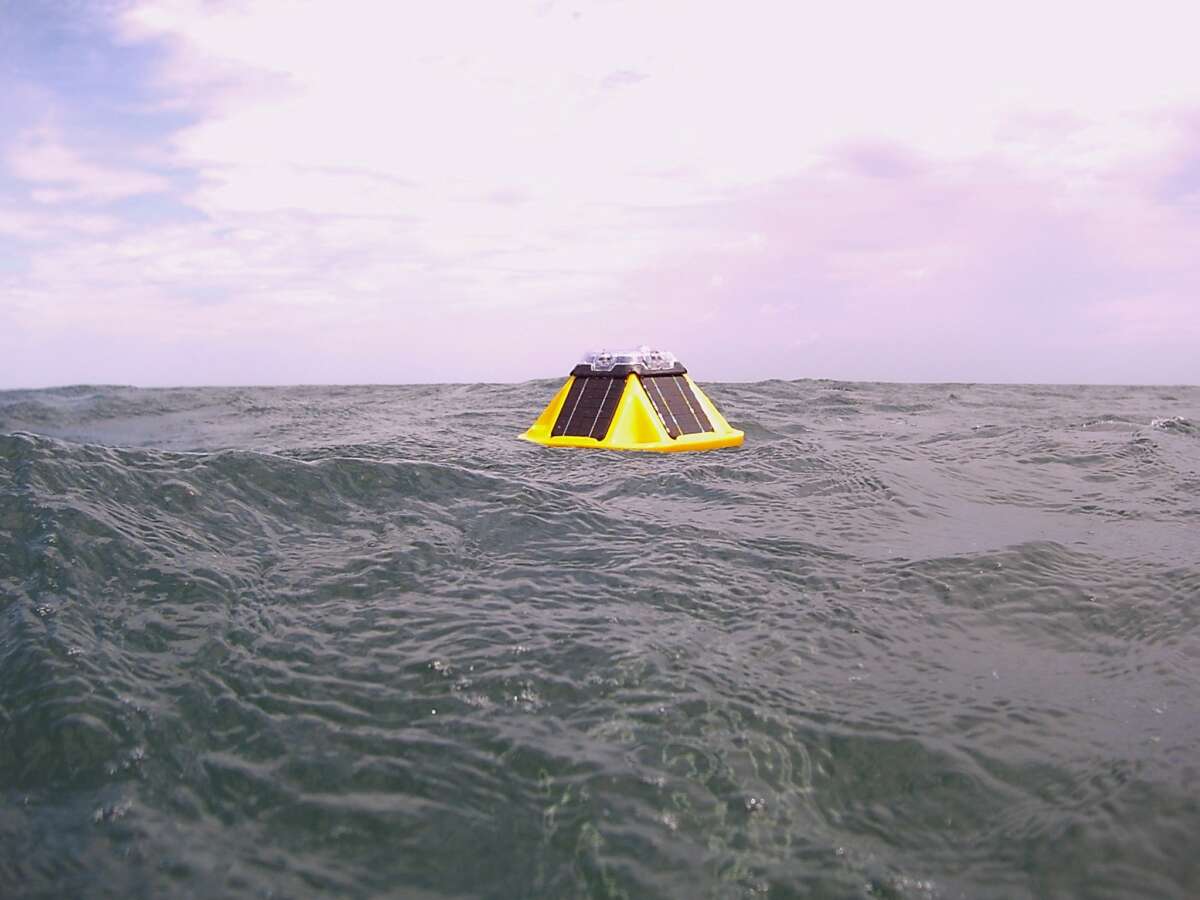
Though relatively small in size, the bright yellow SOFAR buoys are easy to spot from the beach on a calm day or from the pier.
The Spotter buoys provide measurements of directional wave spectra and water temperature crucial for the development and testing of MHK devices. Currently, the buoys provide competitors in the Department of Energy’s (DOE) Waves to Water Prize (W2W), with crucial data on the local wave environment. The W2W competition challenges innovators to create wave-powered desalination systems with the intention of accelerating the development of small, modular, wave-powered desalination systems that can provide potable drinking water to coastal communities in disaster relief settings. In partnership with DOE and the National Renewable Energy Lab (NREL), CSI will host the Drink Stage of the competition in April 2022 at Jennette’s Pier. The data collected from the Spotter buoys will help competitors prepare their devices for the conditions they will be facing in the testing phase of the competition next April.
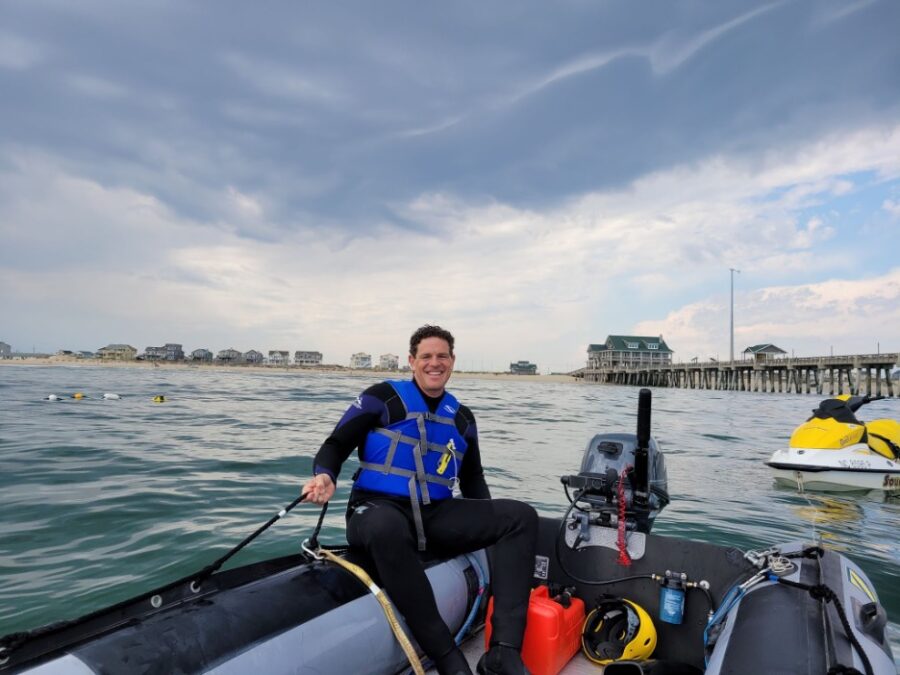
Dr. Mike Muglia during a test article deployment for the Waves to Water Prize competition at Jennette’s Pier. The Spotter buoy in the background is deployed at one of two MHK test sites at the pier.
The two buoys are also serving as an experimental site for characterizing the biofouling community of the area and evaluating ClearSignal’s biofouling protection coating. Biofouling is the accumulation of marine organisms on underwater surfaces. It is one of the biggest factors affecting the cost, operation, maintenance, and data quality of oceanographic instrumentation and can also be detrimental to the operation, performance, and maintenance of MHK devices. ClearSignal’s coating is a silicone-based, non-stick, non-toxic material used to prevent the buildup of biofouling.
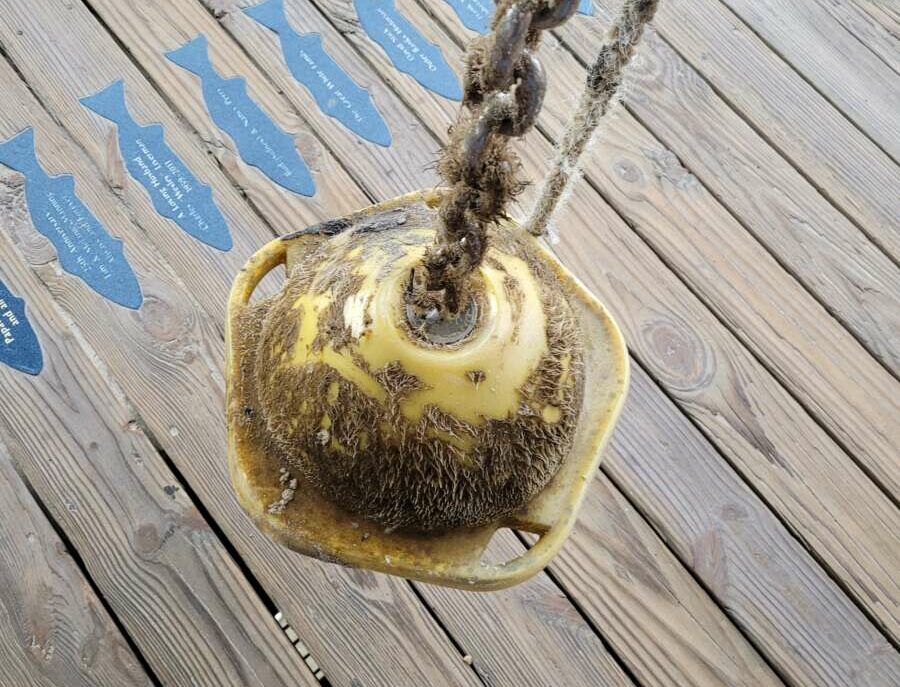
The underside of the buoy which rests in the water is highly susceptible to biofouling, or the accumulation of marine organisms on underwater surfaces.
With the two SOFAR buoys deployed off of Jennette’s Pier, setting up an experiment was simple. One buoy is ClearSignal coated, while the other is not. Researchers in the Dubbs lab at CSI and Peralta lab at East Carolina University will collect samples from the buoys for DNA analysis to better understand the variety of biofouling organisms local to North Carolina’s coast and how the communities on the two buoys differ. CSI will also compare the performance and operational maintenance time of the two buoys.
CSI aims to undertake research, offer educational opportunities, and provide community outreach, and great strides are being made to accomplish these goals with the addition of the SOFAR Spotter buoys to its research infrastructure. The Spotter buoys not only encourage researchers to innovate, but also allow visitors and residents of the local community to see, learn from, and engage in CSI’s research.
Sproul (left) and McQuaid (right) are summer interns with the North Carolina Renewable Ocean Energy Program (NCROEP). They will be writing more about their experiences as their internships continue.
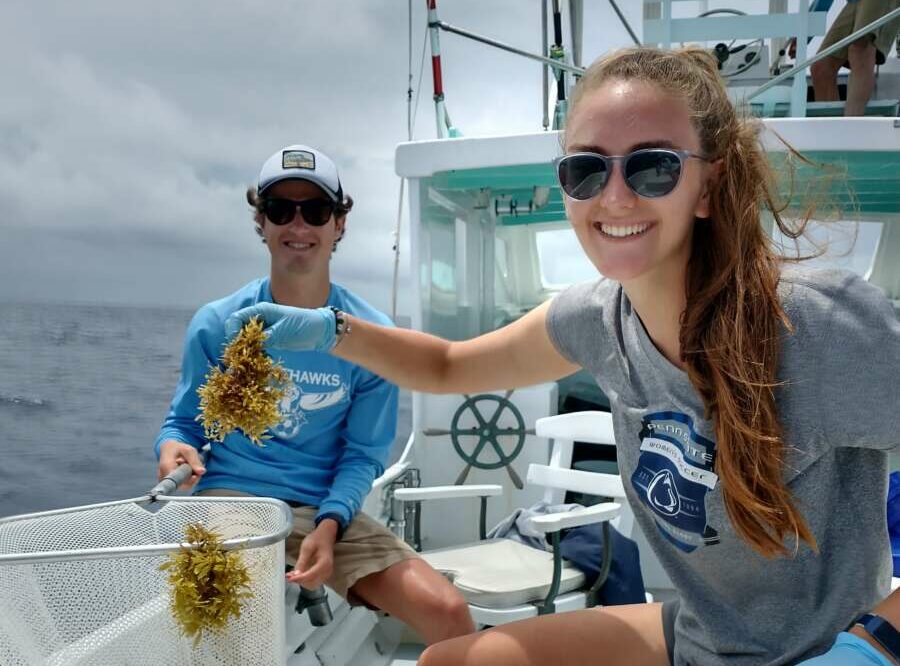

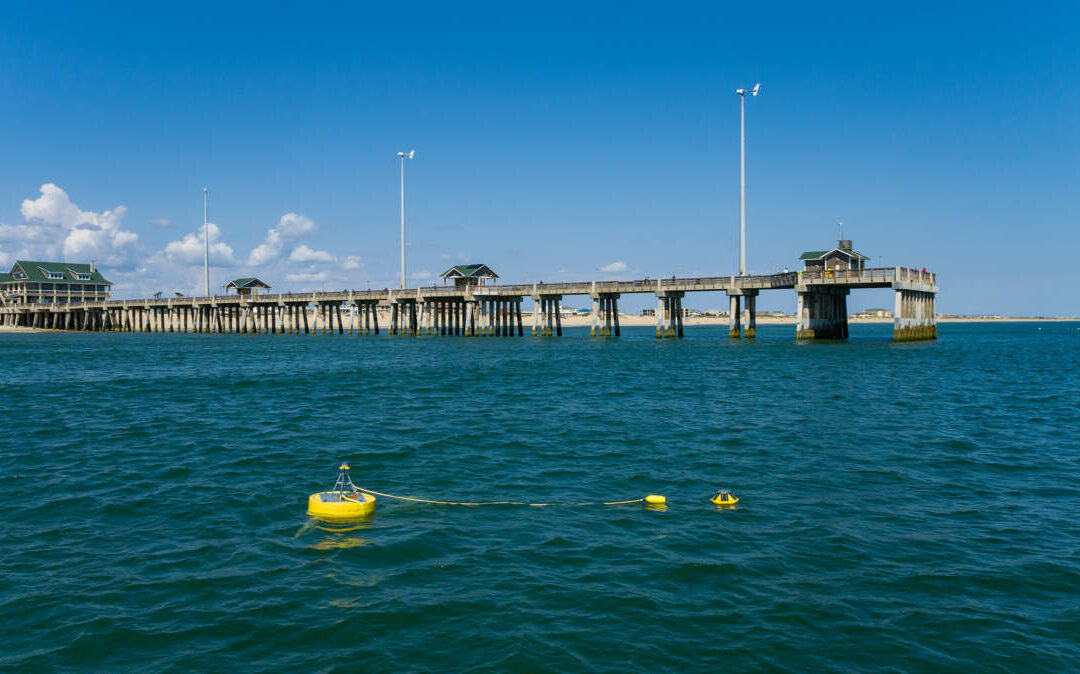

 Based at the Coastal Studies Institute (CSI), the North Carolina Renewable Ocean Energy Program (NCROEP) advances inter-disciplinary marine energy solutions across UNC System partner colleges of engineering at NC State University, UNC Charlotte, and NC A&T University. Click on the links below for more information.
Based at the Coastal Studies Institute (CSI), the North Carolina Renewable Ocean Energy Program (NCROEP) advances inter-disciplinary marine energy solutions across UNC System partner colleges of engineering at NC State University, UNC Charlotte, and NC A&T University. Click on the links below for more information. ECU's Integrated Coastal Programs (ECU ICP) is a leader in coastal and marine research, education, and engagement. ECU ICP includes the Coastal Studies Institute, ECU's Department of Coastal Studies, and ECU Diving and Water Safety.
ECU's Integrated Coastal Programs (ECU ICP) is a leader in coastal and marine research, education, and engagement. ECU ICP includes the Coastal Studies Institute, ECU's Department of Coastal Studies, and ECU Diving and Water Safety. The ECU Outer Banks campus is home to the Coastal Studies Institute.
The ECU Outer Banks campus is home to the Coastal Studies Institute.

